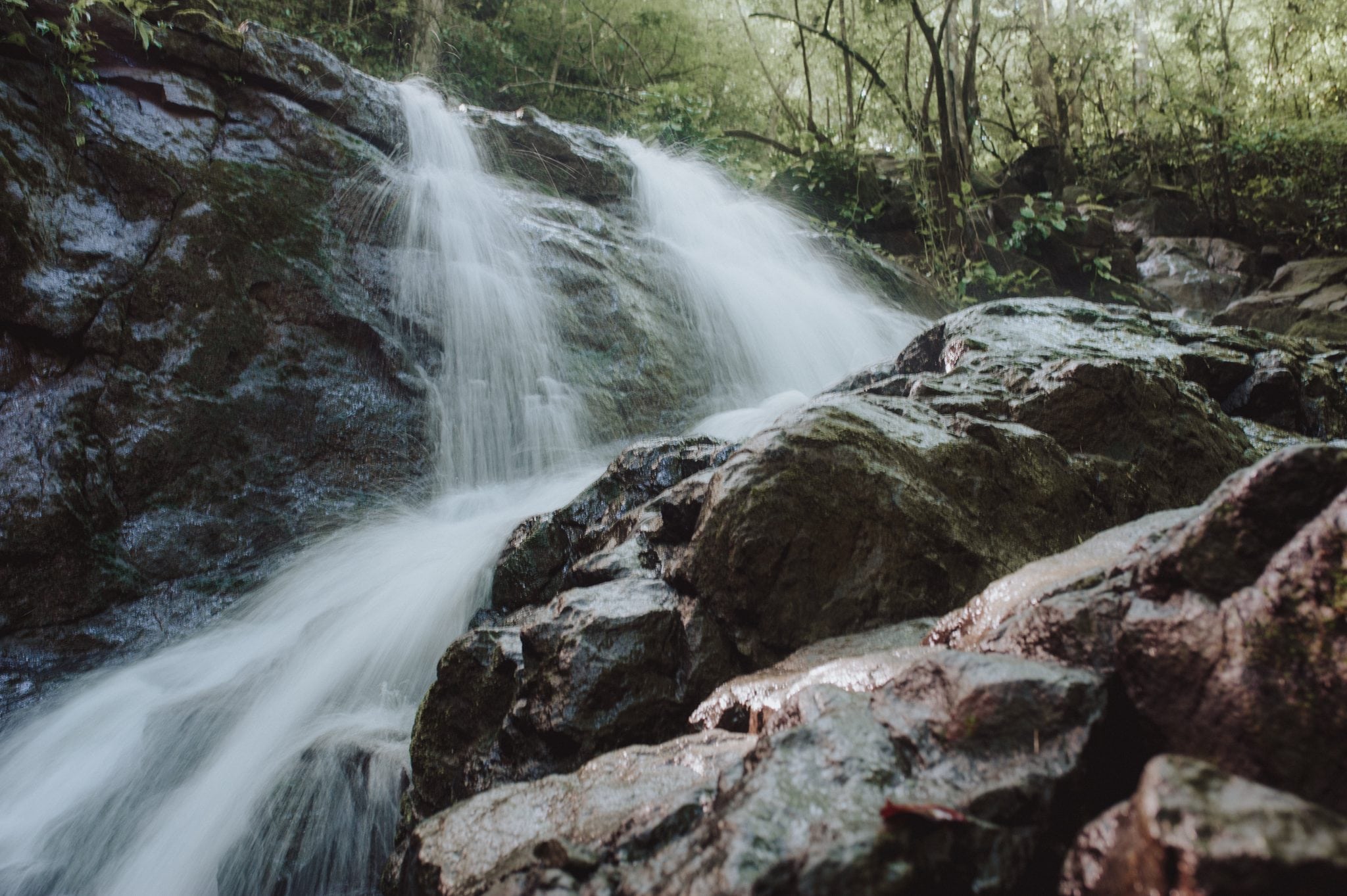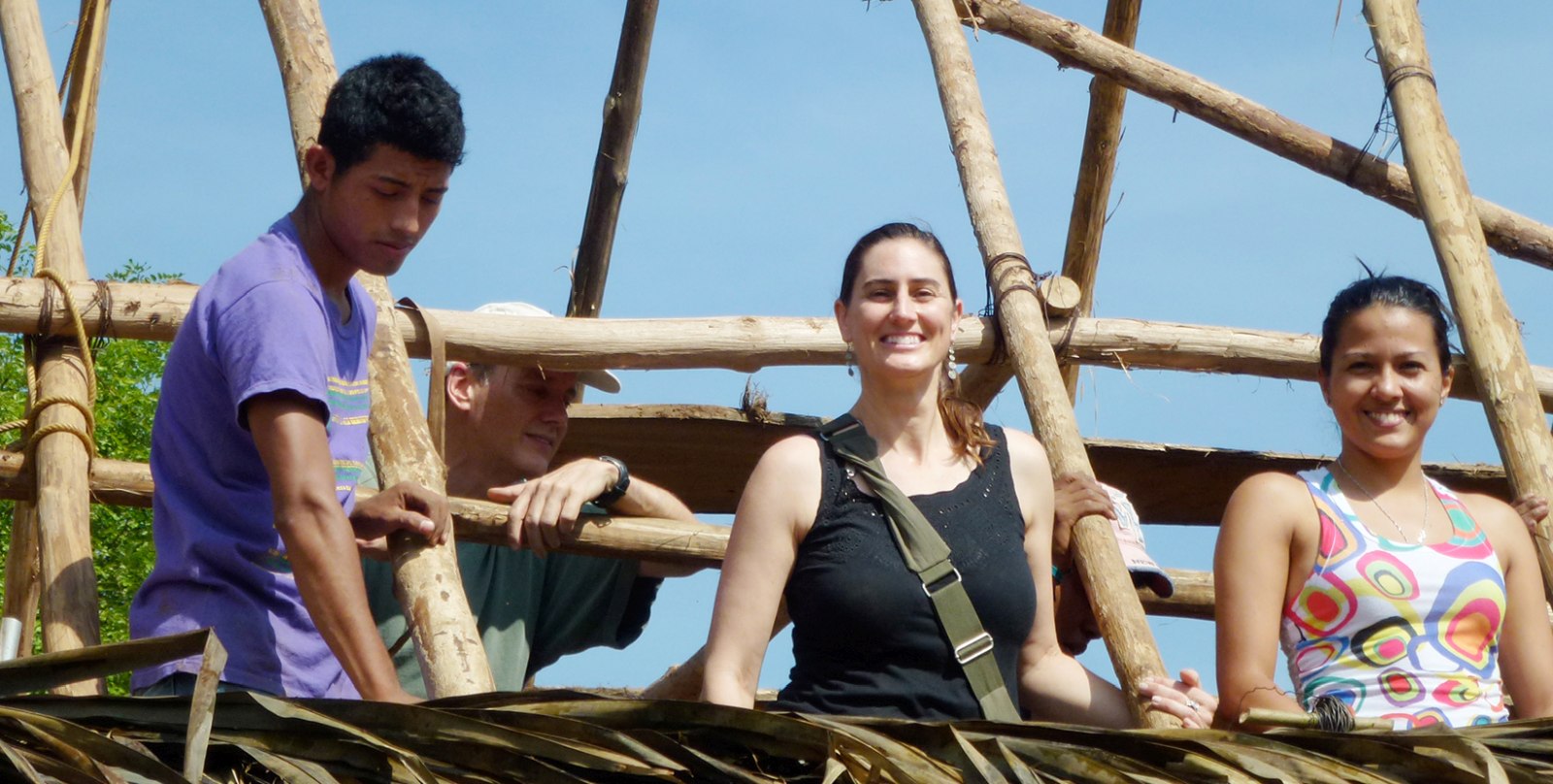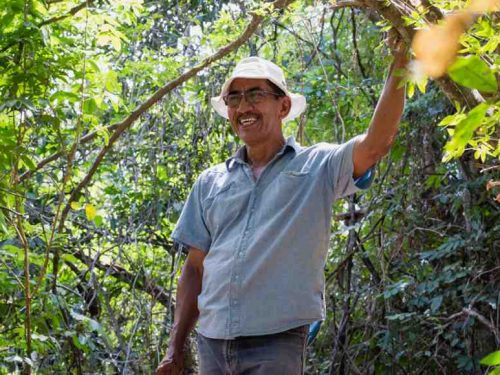
The day started at 7:00 a.m. with breakfast: gallo pinto, plantains, fresh cheese, and a scrambled egg on the porch of Pedro Pablo Pérez Castrillo and Elizabeth Hernández Juárez’s house. The couple are owners of the tourist project Nangú Chorotega, which means “home” because they want thisto be the Chorotega home for anyone who comes.
Since 2012, the couple have received visitors and taken them on a trip through their farm. They feed the visitors and let them experience contemporary Chorotega life from their perspective.
After breakfast, a group of 12 Americans and I start a hike to a waterfall. It takes us 40 minutes get there and is slightly difficult because the way down is a bit slippery, but not so much as not to do it. Marvin Hernández, a student at the Chorotega campus of the Universidad Nacional, guides us. Together with Yocksan Hernández he founded the company Matambú Tours and he puts together the full experience for the tourists.

Pedro Pablo Pérez Castrillo is the owner of the land where the waterfall is.
The waterfall is high, cold, and fast. We take a dip and the more daring among us climb rocks. The path, which belongs to don Pedro and his brother Ezequiel, is constantly maintained.
Don Ezequiel also has a pottery studio, and that’s our next stop. He likes to leave his pots unpainted because the mud found in Matambú is such a lovely color that painting isn’t necessary. In his workshop, Finca Nemú Nekupe, he produces both utilitarian and decorative pieces. One of my colleagues on this adventure volunteers to make a jar on the potter’s wheel and don Ezequiel patiently teachers her; Marvin, however, hurries us along because it’s 12:30 and doña Eliza is ready with the corn rice and creole chicken that she made for lunch.

Ezequiel Pérez helps one of the tourists to use the ceramic lathe.
The promoter of the project is Joshua Alvarez, an American volunteer with the Peace Corps who has lived at Matambú for just over a year. When he arrived, his hosts were don Pedro and doña Eliza and he saw the potential that the town had to offer authentic Chorotega experiences. He began putting activities together to create an experience for local residents and students from the UNA and leave it ready so that in the future the project doesn’t depend on him, but rather on the Chorotega themselves.
The challenge was, and still is, in the marked difference that exists among the residents who want to preserve the Chorotega culture and identity and those who prefer to integrate into Costa Rican society and distance themselves from the Chorotega identity. This makes working in the community more difficult, says Alvarez.

The experience that the tour offers is completely authentic, that includes the traditional dishes of the area.
The tour we took on July 24 is the pilot project, part of the process in which entrepreneurs have worked together to bring a new source of employment to the region and empower themselves as business owners.
At 1:50, after lunch at don Pedro and doña Eliza’s house, we go back out. We climb a seemingly endless hill and arrived at the Association of Women Entrepreneurs of Matambú. Here we’re going to learn how to make pastries in a mud oven. This association is comprised of eight women heads of household who meet twice a week to make products to sell in some markets in Nicoya as well as individual orders – but not always, because it’s difficult to get the raw materials. When they’re ready, we have hot pastries with coffee and listen to the downpour.

In the association of women entrepreneurs Matambú each of the tourists had the opportunity to knead rosquillas and tanelas.
It’s almost night now and our last stop is exciting. Finca Prohima produces organic lettuce, tomatoes, and cucumbers. They also sell acclimatized ornamental plants. They serve us dinner on long tables under a high roof. We eat and converse; we’ve already been together for eleven hours. The pilot plan has been a success. All that’s left is relaxed conversation full of mutual understanding.

One of the most popular attractions of the tour are acclimatized ornamental plants.
What to know:
Contact: Matambú Tours: [email protected],Facebook.com/MatambúTours, 8638-8890.
Price: Tours that include an overnight stay cost around $50. Other package pricing varies depending on the activities.







Comments